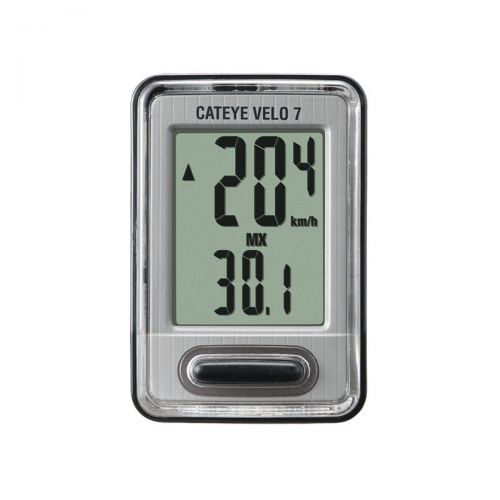WASHINGTON (BRAIN) — The Trump administration has granted a tariff exclusion to importers of some bike computers from China thanks to a request from CatEye America. However it denied a California nonprofit organization's request for an exclusion for China-made kids bikes.
The two actions were the latest decisions on the 94 requests for exclusions for bike-related products submitted by importers and trade groups. Singlespeed road bikes and carbon frames were previously granted exclusions, while the only prior denial was to Delta Cycle Corp.'s request for an exclusion for two-bike storage racks.
CatEye requested an exclusion for its Velo7, an entry-level wired cyclometer. The company told the U.S. Trade Representative that the Velo7 was its best-selling product and said the 25% tariff had "caused a significant reduction" in its sales because of retail price increases. "Consumers are finding significantly cheaper options from manufacturers selling directly into the U.S. and shipping via ePackets," CatEye wrote, referring to a cheap shipping method used by China and Hong Kong vendors.
CatEye USA said its Japanese parent company has looked into moving production of the computer out of China to Japan but determined that moving production would cost more than the 25% tariff.
The Velo7 is imported under the U.S. Harmonized Tariff Schedule code of 9029.20.20. The exclusion applies to "bicycle speedometers designed to be handlebar mounted, wired, with a digital display, capable of measuring the following seven variables: current speed, average speed, maximum speed, trip distance, total distance, elapsed time and time."
Under the exclusion, importers can request reimbursement for the tariffs they've paid since they were imposed last year. The tariff was imposed at 10% last September and increased to 25% in May. The exclusion is in effect until Aug. 7, 2020. Prior to the Trump administration's new tariffs speedometers were subject to a 6% tariff in most situations, which was paid in addition to the 10% and 25% new tariffs. With the exclusion, importers will resume paying the 6%.
Denial
The USTR denied a request from Off the Front, a Fresno, California, nonprofit. The group imports 400-800 kids bicycles from China each year. The bikes are earned by 4th graders in impoverished areas of Fresno County and given away free of charge.
"As much as we would like to buy locally, it is simply not cost effective for our small non-profit. We received a quote for an US made bike for 10 times what we can purchase the same bike for China," the group told the USTR in its exclusion request.
Joseph Barloon, general counsel to the USTR, sent a letter to Off the Front notifying the group that the request has been denied. Barloon wrote that, "the request failed to show that this particular product is available only from China."
Other importers have requested exclusions for kids bikes that the USTR has yet to decide on, so the nonprofit may yet benefit from an exclusion, Barloon noted in the letter.


